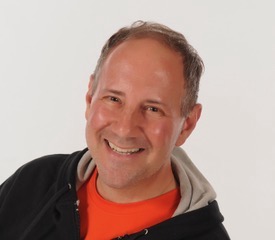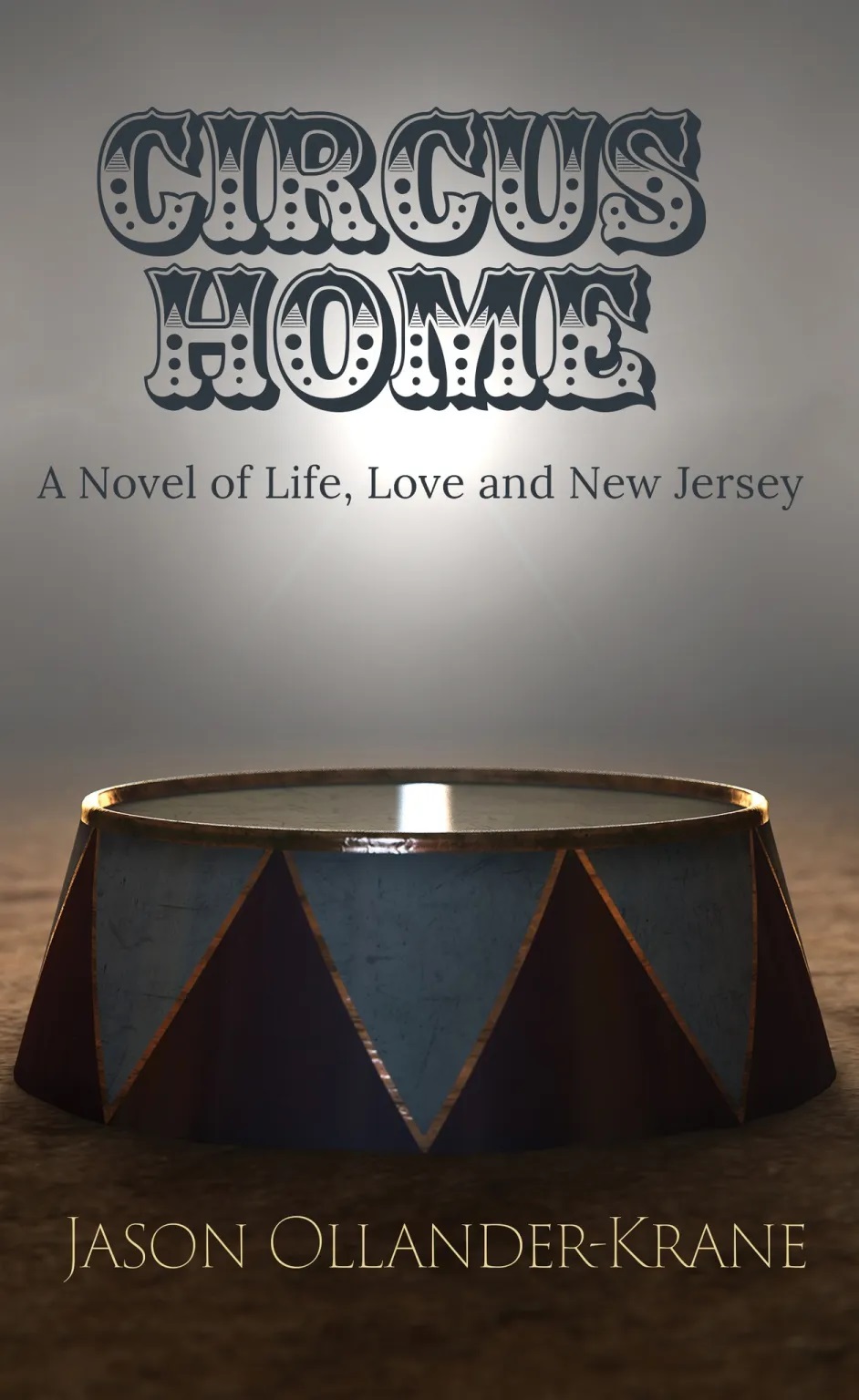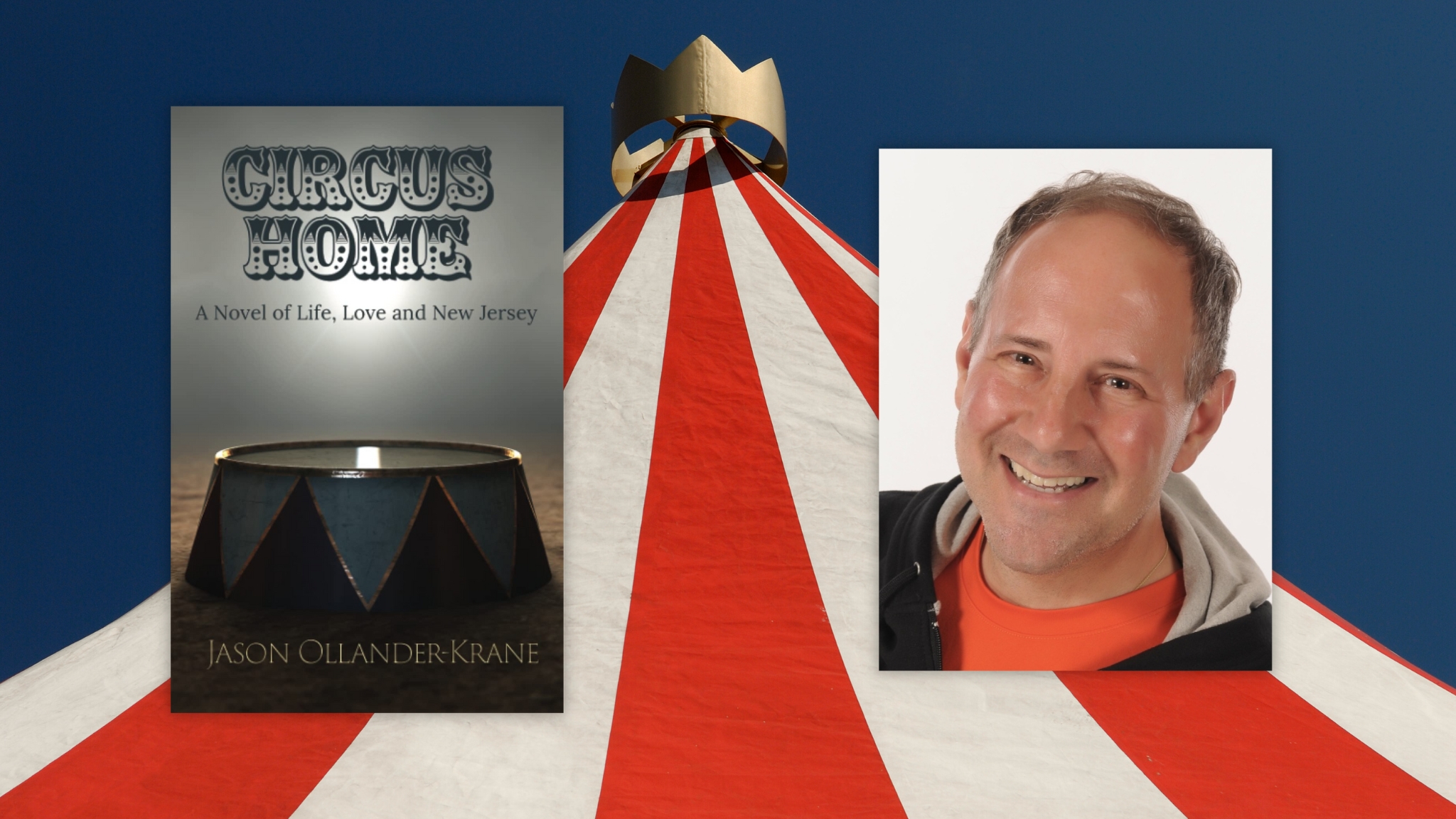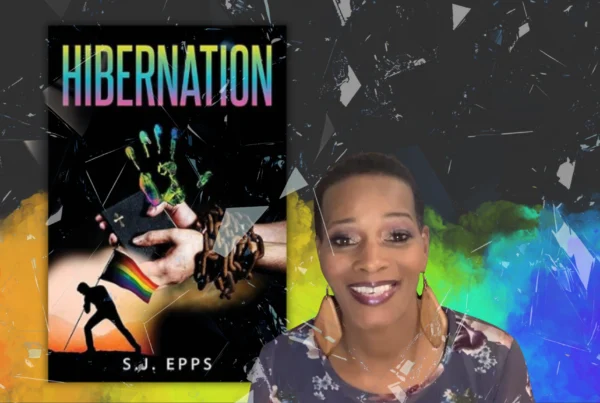Circus Home by Jason Ollander-Krane
What inspires a story about an assisted living home for retired circus and carnival performers? The real thing, apparently!
Jason Ollander-Krane’s mesmerizing story Circus Home is part-fact, part-fiction and all the entertainment of a night at the circus. Drawing from both historical events and his own imagination, the author is able to create a one-of-a-kind narrative of what goes on behind the curtains — or in this case, behind the tent flaps.
Read more below to see how Circus Home came to be.
Q: You have quite a theatrical background; can you tell us a bit about it and how it influenced your book?
A: I was fortunate to grow up in a theatrical family, attending plays and musicals and making theater. Telling stories, hearing, seeing and understanding what makes great storytelling was central in my life from an early age. The rhythm of strong storytelling, the penchant for winding out a story in a dramatic way come from my upbringing. I developed a love for intriguing characters along with an understanding of the small touches that take a character from words on a page to three dimensions that is very helpful to my writing. Seeing so many successful approaches to telling a story gave me a fuller understanding of the options I had for telling my Circus Home story.
Q: What kind of fascination do you believe people have about the circus, its people and their unusual lives?
A: When you imagine a traveling show coming into the towns and workaday lives that the majority of Americans lived in the beginning and middle of the last century — you can imagine why the circus fascinates so many of us. The trucks would rumble into town and, in a few hours, a hardscrabble empty lot would be transformed into a magical place filled with rarified talent, music, light and theatrical magic. Circus people brought a magical world right to you — glamorous, romantic, scintillating — and invited you into that world to hear and see things you had never experienced before. Then, just as quickly as they appeared, they vanished. Who wouldn’t want to know and enter that world?
Q: What was the hardest part of your writing process?
A: I find writing dialogue that sounds real to be a challenge. Getting the tone just right and giving each character their unique sound takes lots of time and effort for me.
Q: Why did you decide to structure the book with Brenden Hardy, The Barker, as the narrator? And why did you place the overarching setting in a retirement home?
A: I am captivated by the idea that we all live theatrical lives. I wanted to explore how each of us (not just circus people or performers) creates the character we are socially by controlling what people know about us. Most of the characters in Circus Home face a choice in how they present themselves. How they handle that choice changes their lives. I chose Brendan as the narrator because he is the mirror image of everyone else in the book. He spent his career using fabrication, hyperbole and exaggeration to lure people into the show, yet, in the end he is — of all the characters — the most genuine about presenting himself. He is so quick to exaggerate, elaborate, embroider. It is hard to tell truth from fiction in his narration. That made it great fun to write his narration.
The setting of the book came from real life. In 1978 I used to drive from New Brunswick, New Jersey to Baltimore, Maryland every few weeks. Since I was a starving student, I routinely drove the backroads to save money on turnpike tolls. Each time I made the trip, some place deep in South Jersey back country, I passed a billboard standing in a deserted lot that read “Future Site of The New Jersey Home for Retired Circus and Carnival Performers.” I didn’t know if it was real, if there were actually plans to build such a home or if it was a piece of avant-garde performance art. For forty years I thought there was a novel there. I finally wrote that novel as Circus Home: A Novel of Life, Love and New Jersey. It is apt for the story, too. An assisted living home is the place where many of us will face the ultimate reality. Who could imagine a setting as entirely opposite from a circus, a carnival or a magic show than a retirement home? Its seriousness is the perfect balance for the flimsy theatrical world of the novel. That makes it the perfect foil for a novel that explores fact and fantasy and juxtaposes magic with reality.
Q: Your characters range from cowboys and Russian mail-order brides to rouge clowns and young magicians-in-training. Where did you find inspiration for all these characters?
A: I wanted to write a novel that had depth and sweep; to create a world that felt large and complicated, like a Dickens novel feels. Yet I also wanted it to be accessible and great fun to read; so complicated yet not too complicated. I knew I wanted to write characters that were idiosyncratic and unexpected. I actually started the project with a list of characters and wrote from there, so the book would be character-driven. Once I had the sketch for the characters, I just needed to let go, imagine and capture my whimsy.
Q: What do you hope readers will take away from your book?
A: These characters are good people. To survive they base their lives in illusion, holding secrets close to their chest until forced into action. Each action presents a turn — often a sharp one — in their life story. Their lies, fictions, half-truths and flights of fancy have consequences large and small.
The novel asks readers to consider the role of make-believe, illusion, and deception in their lives. If each of us fabricates who we are — who are we? When we play a character, where do we end and the character begin? If you tell a lie to change your life for the better — is that wrong?
Q: Can you tell us about any other stories you’re working on?
A: My next novel is called Lobster Camp. I am writing it now. It starts at the dawn of time with the Big Bang and ends at a summer camp in Maine which teaches kids how to fish for lobsters. On the way, it tells the story of the world when it was ruled by The Lobster King along with four generations of the Gadonkasang family who own the camp. Also character-driven, it will hopefully be finished in late 2024.
 Jason Ollander-Krane grew up in a theatrical home. His father conducted the pit orchestra for musicals and his mother was a theatrical costume designer. He was starstruck at the age of five when his parents took him backstage to meet John Raitt after a performance of Carousel. At that moment Jason pledged to make a life on the stage. By age eight he was lip-syncing The Music Man in his grandparents’ living room. At nine, his father introduced him to Marcel Marceau, who taught him mime. At the age of ten he got his first professional theater job building sets at the Tenthouse Theater in Highland Park, Illinois. At 11 he got his FCC radio operating license and had his own radio show. He studied English Literature at Rutgers College and worked as an actor in New York City. When he wasn’t working or auditioning he loved to tour the magic shops in midtown Manhattan to schmooze with the old-time magicians.
Jason Ollander-Krane grew up in a theatrical home. His father conducted the pit orchestra for musicals and his mother was a theatrical costume designer. He was starstruck at the age of five when his parents took him backstage to meet John Raitt after a performance of Carousel. At that moment Jason pledged to make a life on the stage. By age eight he was lip-syncing The Music Man in his grandparents’ living room. At nine, his father introduced him to Marcel Marceau, who taught him mime. At the age of ten he got his first professional theater job building sets at the Tenthouse Theater in Highland Park, Illinois. At 11 he got his FCC radio operating license and had his own radio show. He studied English Literature at Rutgers College and worked as an actor in New York City. When he wasn’t working or auditioning he loved to tour the magic shops in midtown Manhattan to schmooze with the old-time magicians.
Jason had a 45 year career in human resources. He became an HR executive in Silicon Valley doing three startups including his own company, which he ran for 11 years as CEO. He worked as an executive at Polycom, Informatica Corporation and Sony Playstation. He retired as Vice President of Organization Effectiveness and began to write fiction full time.
Jason enjoys travel and avidly attends theater, cabaret and music performances all over the world.
He lives with his husband, Rob, in the California desert.





